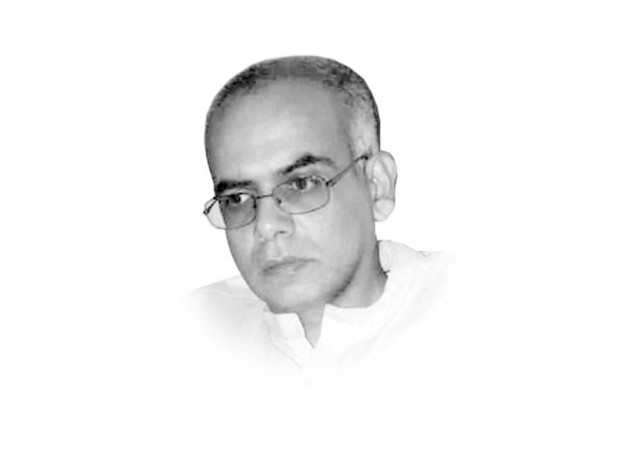How to counter troubling perceptions
India has done a better job of articulating its concerns about Pakistan in key spheres of influence in DC and beyond

The writer is a development anthropologist. He teaches at George Washington University
The US itself has a turbulent history of relations with us, which has often boiled down to transactional means to achieve limited strategic goals. Our bilateral cooperation became particularly transactional during Afghanistan’s proxy war, and has remained post-9/11.
The US myopia in trying to coerce and cajole Pakistani cooperation in Afghanistan without paying heed to its regional insecurities has produced lacklustre results. Yet, the new US administration seems unwilling to reconsider its approach towards Pakistan, by conversely signalling its willingness to see India yield more influence within Afghanistan.
India has done a better job of articulating its concerns about Pakistan in key spheres of influence within DC and beyond. India has done this gradually, and persistently, using a varied strategy of not only focusing on high-powered official visits, but by creating networks and relationships with US politicians, academics, think tanks and other opinion makers. Conversely, there is diminishing evidence of Pakistani perspectives in US policy circles to counter varied attempts to fuel American frustrations by portraying Pakistan was a duplicitous nation, which refuses to let go of using terrorist groups to promote its regional interests.
Pakistan’s irredentism, its army’s desire to subvert India’s ascendency as a great power and apparent delusional aspirations to be treated on a par with India despite their huge differences in capabilities, achievements and prospects seem more like facts than a matter of opinion. There is emerging evidence of attempts to also undermine the rationale for the US and the international community to call for Indo-Pak talks to not only lessen bilateral tensions but also alter the stalemate in Afghanistan. Arguments to this effect have been put forth in a new policy paper published by a prominent international think tank within DC, which asserts pushing for a Pak-India dialogue is misguided and counterproductive.
One isn’t trying here to support military intervention in politics, or be an apologist for the use of non-state actors to retain strategic depth. However, to claim the possession of nuclear weapons has permitted the Pakistani military and intelligence services to underwrite a campaign of terrorism intended to coerce India, and retain its grip on the national political economy, is a lopsided view. Nonetheless, this line of argument has been used to argue that international pressure for bilateral engagement will only embolden the Pakistan Army into believing that its strategy of nuclear coercion works. Such distorted narratives don’t adequately consider complexities of our precarious geostrategic situation, nor the dynamics of internal political culture within Pakistan. There aren’t many avenues for a consistent counter Pakistani viewpoint to be heard.
Resultantly, one doesn’t see many educated US observers pressing on the need for international power mediation for securing peace and resolving the Kashmir issue. Instead, many of them concur that trying to continue pressing Pakistan to cease alleged support to ‘jihadi terrorism’ is a good idea.
During the Indo-Pak diplomatic tirade in the UNGA, our ambassador tried to turn up the heat on India by questioning its much-touted democratic culture when it came to the Kashmir issue. Unfortunately, she flashed a picture of a woman injured by a pellet gun, who was of a victim of violence in Gaza, not Kashmir. This apparent faux pas was quickly spun to insinuate use of erroneous information and in turn undermine the veracity of Pakistani concern about the ongoing rights violations in Kashmir. This proactive and persistent Indian approach to seize opportunities to justify and further its perceived national interests may not be admirable but is effective.
Pakistan needs to work harder and utilise a multidimensional strategy to make its concerns and compulsions be known in the capitals of major powers, especially DC.
Published in The Express Tribune, October 6th, 2017.
Like Opinion & Editorial on Facebook, follow @ETOpEd on Twitter to receive all updates on all our daily pieces.
















COMMENTS
Comments are moderated and generally will be posted if they are on-topic and not abusive.
For more information, please see our Comments FAQ